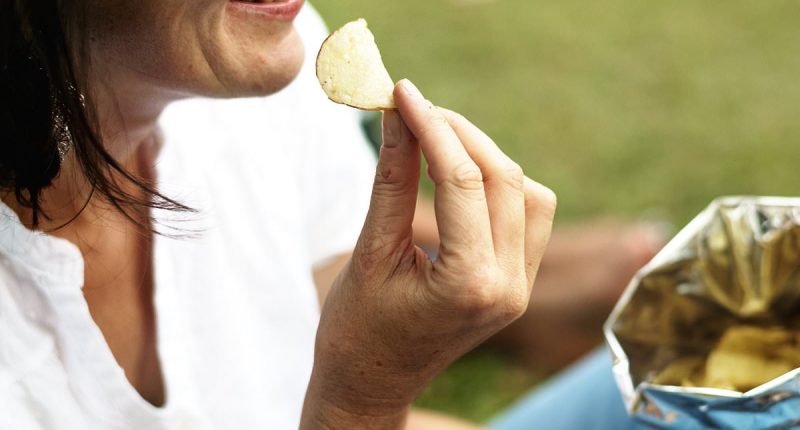Share this @internewscast.com
PepsiCo has announced that it has already started phasing out artificial ingredients in line with Health Secretary Robert F Kennedy Jr’s drive to ban them from foods.
The food giant’s CEO, Ramon Laguarta, said that it would continue to transition products such as Cheetos, Lay’s, Tostitos and Doritos to be more natural in response to a change in consumer preferences.
Laguarta confirmed that Lay’s and Tostitos ‘will be out of artificial colors by the end of this year.’
Used in the American food supply for decades to give treats an appealing hue, in recent years concerns have been raised over the health effects of food dyes – including animal studies suggesting they can cause hyperactivity, cancer and other health problems.
PepsiCo, headquartered in Harrison, New York, owns more than 200 food and beverage brands worldwide, including 23 that each generate over $1 billion in sales annually.
Laguarta claims that 60 percent of the company’s portfolio currently doesn’t contain any artificial dyes and they are working at finding natural alternatives for the rest of the brands.
Among the most scrutinized dyes in the food and beverage industry are Red 3, Red 40, Yellow 5, and Yellow 6.
Natural alternatives to these include ingredients like beet juice, pomegranate juice, turmeric, saffron, carrot juice, and paprika.

PepsiCo has announced that it has already started phasing out artificial ingredients in line with Health Secretary Robert F Kennedy Jr’s drive to ban them from foods
In March, PepsiCo launched ‘simply’ Ruffles Hot & Spicy crisps, which contain no artificial colors or flavors, reflecting this shift.
The new seasoning still has a fiery kick, thanks to a blend of red pepper and ‘bold’ spices, but without the signature fiery hue.
Other products from the company which are now free from synthetic dyes and flavorings include ‘simply’ lines of Lay’s, SunChips, Tostitos Tortilla Chips, and Cheetos.
However, many of the brand’s popular products are still laced with artificial dyes.
For example, Flamin’ Hot Cheetos contain Red 40, Yellow 5, Yellow 6, while the Lemon Lime flavor of Gatorade has Yellow 5.
In a bid to make its foods healthier all round, Laguarta highlighted that PepsiCo has ‘been leading the transformation of the industry now for a long time on sodium reduction, sugar reduction and better fats’.
FDA Commissioner Dr Marty Makary announced last Tuesday that the agency will phase out the use of eight artificial food dyes in America’s food supply within the next two years.
The massive shakeup will free children from the ‘toxic soup’ that makes up much of America’s food supply, Dr Makary said.
Dr Makary, a trained surgeon, began his remarks by calling attention to an oft-cited review in The Lancet, which reported ties between artificial food dyes and hyperactivity in children.

FDA Commissioner Dr Marty Makary, pictured right of RFK Jr and Jay Bhattacharya (head of NIH) announced the agency will phase out the use of eight artificial food dyes in America’s food supply within the next two years
‘So why are we taking a gamble,’ Makary said.
The Trump administration will ask food companies to phase out the use of Red 40, Yellow 5, Yellow 6, Blue 1, Blue 2, and Green 3 by the end of 2026 and start using natural alternatives, which the FDA will approve or deny first.
The move is not legally binding and companies do not have to comply.
‘For companies that are currently using petroleum based red dye, try watermelon juice or beet juice,’ Makary said, lifting small bottles of juice off his podium. ‘For companies currently combining petroleum-based yellow chemical and red dyes together, try carrot juice.’
The latest proposal also revokes approval for two dyes, citrus red 2 and orange B, which are not as common as the other dyes.
The FDA has not reached any formal agreement with the food industry to carry out these goals, though they apparently have ‘an understanding,’ and the agency has not put forward a detailed plan for achieving them.












